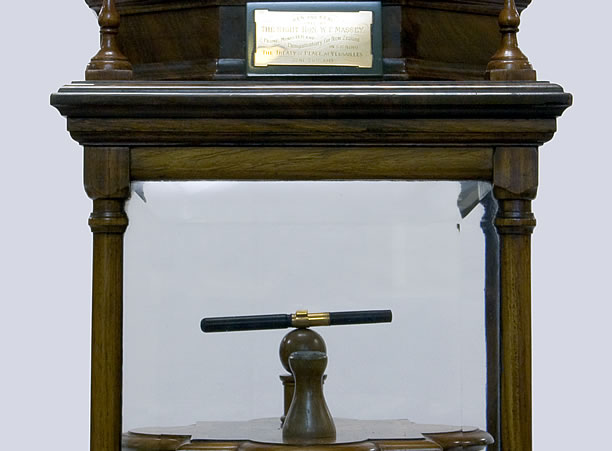
Bill Massey’s was the 17th signature on the treaty which formally ended the war between the Allies and Germany. Versailles was a milestone on New Zealand’s road to nationhood.
Britain’s dominions had no say in the decision to go to war in 1914, or in the negotiations in late 1918 which resulted in separate armistices with the Ottoman Empire, Austria-Hungary and Germany. Canadian prime minister Robert Borden and his Australian counterpart Billy Hughes insisted on dominion representation at the peace conference. Canada, Australia and South Africa were each allotted two delegates and New Zealand one. While this was justifiable in terms of relative population and casualties, it meant excluding Liberal Party leader Joseph Ward, since 1915 in effect co-prime minister. Ward eventually joined the British Empire delegation.
Becoming a foundation member of the League of Nations in 1920 confirmed New Zealand’s effective independence. US President Woodrow Wilson was an enthusiast for the League, the forerunner of the United Nations. Wilson wanted former German colonies administered under League mandates until they were ready for independence. The mandates granted to South Africa for South-West Africa (Namibia), Australia for New Guinea and New Zealand for Western Samoa allowed them to be administered as ‘integral portions’ of their territory – in effect, colonies.
Little thought was given to the territories’ inhabitants. Colonel Robert Logan’s assurance that most Western Samoans supported New Zealand rule soon proved to be misguided, not least because of the 8500 deaths caused by his administration’s failure to quarantine a flu-ridden trading vessel.
Japan’s status as one of the victorious powers irked New Zealand and Australia, which saw themselves as outposts of European civilisation and were keen to keep out non-white migrants. Neither dominion was happy that Japan was awarded mandates over former German colonies north of the Equator. But given their own acquisitions, they had no grounds for objecting.
The Allies agreed on the peace terms in early May, then waited in Paris for nearly two months while Germany quibbled. The amount Germany owed in reparations was not yet settled. Massey hoped New Zealand would receive £10 million. In this, as in much else about what he came to regard as a ‘soft’ peace, he was to be disappointed.
Read more on NZHistory
Peace celebrations in 1919 – 1919 peace celebrationsNew Zealand in Samoa – New Zealand in Samoa
External links
How to cite this page
'New Zealand Prime Minister signs Treaty of Versailles', URL: https://nzhistory.govt.nz/page/new-zealand-prime-minister-signs-treaty-versailles, (Ministry for Culture and Heritage), updated 2-Jul-2020

Community contributions